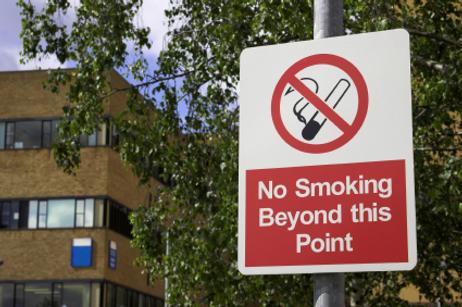Smoking bans are not new at community colleges; many schools have prohibited smoking in buildings and other areas of campus for years. However, complete, school-wide smoking bans are still a relatively new – and growing – trend for the 20-something crowd. Many community colleges have implemented such bans, with 120 campuses jumping onto the smoke-free bandwagon this year alone. However, campus-wide smoking bans are not met with enthusiasm by all students, and enforcement has proven to be a significant issue for many of these schools. Take a look at why some community colleges are launching such bans, and how they are handling the negative aspects of their decisions with students.
Smoke-Free = Cleaner, Healthier Campuses
According to a recent report on Christian Post, the Centers for Disease Control and Prevention estimate that nearly 22 percent of adults between the ages of 18 and 24 smoke. Some colleges implementing a smoking ban are hoping to encourage students to kick the habit as a result. To that end, college representatives share information on quitting with students and provide aids like nicotine patches and gum to students during school hours.
Other community colleges have initiated smoking bans to clean up campuses littered with second-hand smoke and cigarette butts. The first college to launch a campus-wide ban, Ozarks Technical College in Springfield, Missouri, had that goal in mind. According to CNN, the president of the college approached Ty Patterson, the former vice president of student affairs at Ozarks, about the smoking issue.
“The president came to me and said, ‘Ty, we’ve got problems,’” Patterson recalled to CNN. “You can’t get in and out of doorways without going through a corridor of smoke.”
When Patterson realized that no other college campus in the country had issued a campus-wide smoking ban, he made Ozarks the first. The school then helped 500 other school launch similar bans on their own campuses, which included training of staff members and a structured violation policy that forced smokers to abide by the rules.
Students Protest Smoke-Free Decision
While the smoking ban is going strong at many community colleges today, the new policies have met more than their share of opposition by students and faculty alike. Corning Community College in New York issued a campus-wide smoking ban for this academic year, and many students are unhappy with the decision. While students were able to smoke outdoors on campus last year, this year they have to make a 10-minute walk off campus to light up.
“I used to just be able to come out, smoke a couple of cigarettes and make it to class on time,” Corning student Samantha Fish told WENY-TV. “[Now] I have to walk all the way over here now and try to smoke one cigarette.”
Some Corning students have stated that they have no plans to honor the ban. Student Scott Lehman told WENY, “I’m going to smoke no matter what. I might not smoke where I can be seen and [I might be] penalized for it, but I am going to smoke.”
Other colleges have seen more organized protests from their students. When Arizona State initiated a similar ban, students opposed to the action created a Facebook Page titled, “1,000 Students Against the Smoking Ban.” According to the Christian Post, one post on the page read, “They are trying to ban smoking again on campus. They tried and failed last year. The students and council spoke. They support smoking zones, not fascism.”
Enforcement Issues Plague Schools
Another problem colleges are facing in the wake of smoking bans is enforcement. In many cases, the schools are relying on students to police the campus and catch smokers in the act. Volunteers ask smokers to put out cigarettes and provide information on how to kick the habit. Melissa McCann, a Smoke-free, Take Action! volunteer for the University of Kentucky said that all of the students she asked to put out cigarettes over the summer complied with the request.
However, even student-led enforcement teams did not make the grade with smokers at some schools. Graham Kozak, a senior at the University of Michigan and president of the College Libertarians, told CNN, “It’s not within the scope of the university’s responsibilities to decide that smoking is an activity that we as adults shouldn’t engage in,” Kozak told CNN.
Does it Work?
Despite the protests launched by students and faculty at many campuses across the country, early evidence does show that smoking bans on college campuses are serving their purpose. According to a report at AZ Central, smoking bans like the Smoke Free Arizona Act have made a difference in the number of people who are kicking the habit in the state.
“Everyone knows that tobacco is a health risk. No one is unaware of that,” Bob England, director of the Maricopa County Department of Public Health in Arizona, told AZ Central. “Education can only do so much, and frankly, we’ve pretty much exhausted what you can do with individual education.”
England added that the first year the smoking ban was implemented across the state, one in five Arizona smokers kicked the habit. With a large number of those smokers hanging out on college campuses during the day, the hope is that when smoking is banned in that environment, even more will quit smoking for a healthier lifestyle overall.
However, the question still remains as to whether colleges or states have the right to determine the habits in which individuals choose to indulge. The controversy is sure to continue as more colleges implement smoking bans – and more students search for ways around those bans.















